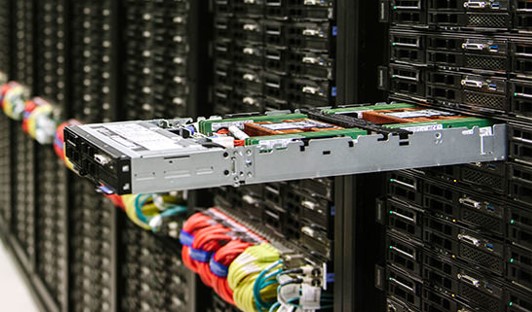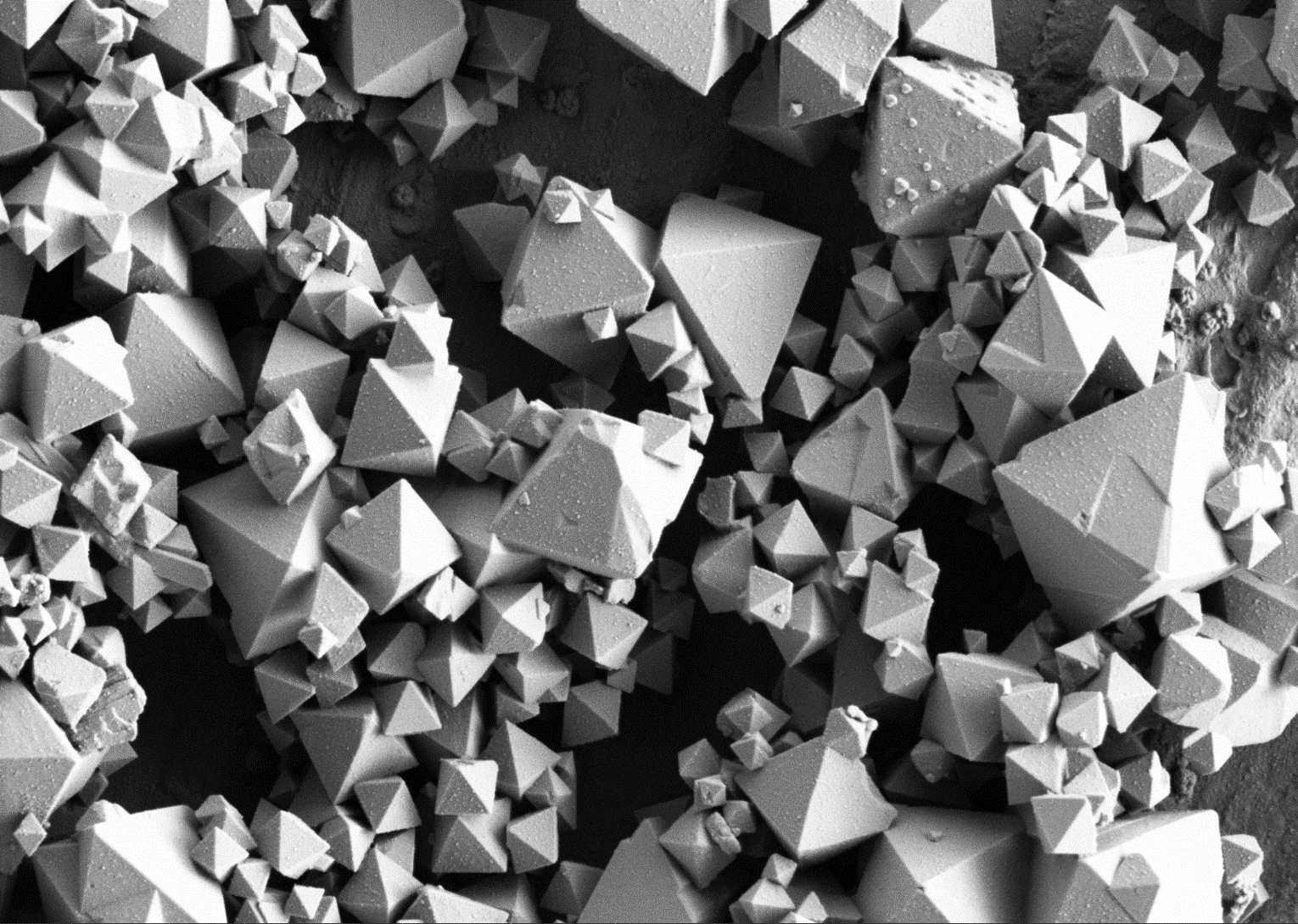Computational Nanoscience and Technology
Development of computational methodologies
Smart design of materials
Simulation of processes



DESCRIPTION
Development and exploitation of advanced theoretical methods of computational chemistry, molecular simulation and electronic, optical and mechanical properties of materials, aimed at the design of functional nanomaterials for applications in sustainable and environmental technologies.
a) Development of computational methodologies
Theoretical and simulations methods are widely used for scientists all over the world with applications in many areas. In CNATS we combine classical simulations (including Molecular Dynamics, Monte Carlo methods, Transition State Theory) and DFT calculations along with new techniques such as Deep Learning, Big Data Science or Artificial Intelligence. Our staff has a wide expertise not only in applying these techniques but also in developing new methodologies, models and force fields.
b) Smart design of materials
By means of in silico analysis, our team is able to screen huge materials databases for selecting the best candidates for a specific target. Our prediction tools allow the researchers in CNATS to define the chemical properties of a desired materials as well as to atomistic design of the structure. With the right techniques, predictions onto the characteristics of the target framework can be obtained and an estimation of the efficiency of the new structure. Finally, the results can serve as a guide for experimental researchers to synthesize the material.
c) Simulation of processes
By applying traditional and novel methodology, members of the CNATS can study different processes such as adsorption and diffusion of gases in nanoporous materials, mixture separation, permselectivity of membranes, aggregation of precursors, and prediction of the performance of materials for specific purposes. A global approach can be undertaken, going from atomistic scale to meso- and large scale.
Associated Staff
Development of computational methodologies
Ana Martin Calvo
I perform classical simulations (Monte Carlo and Molecular Dynamics) to study at molecular level the adsorption and diffusion properties of gases and liquids in nanoporous materials (zeolites and MOFs), with the aim of understanding and improving processes with environmental and technological impact, such as water desalination, removal of contamina...
Más informaciónAna Martin Calvo
Molecular Simulation of Porous Materials for Environmental and Technological Applications
I perform classical simulations (Monte Carlo and Molecular Dynamics) to study at molecular level the adsorption and diffusion properties of gases and liquids in nanoporous materials (zeolites and MOFs), with the aim of understanding and improving processes with environmental and technological impact, such as water desalination, removal of contaminants, or hydrogen purification, among others.
Juan José Gutiérrez Sevillano
Classical simulation applied to the study of porous materials with applications of industrial, energy and environmental interest.
Manuel Jesús López Baroni
I investigate the ethical and legal implications of so-called disruptive technologies: Nanotechnology; biotechnology, synthetic biology, neurotechnologies and Artificial Intelligence.
Más informaciónManuel Jesús López Baroni
Ethics of emerging technologies. Bioethics
I investigate the ethical and legal implications of so-called disruptive technologies: Nanotechnology; biotechnology, synthetic biology, neurotechnologies and Artificial Intelligence.
Sofia Calero Diaz
Calero’s research involves the application of simulation to industrially relevant systems and the development of force fields, algorithms and simulation methods to reverse-engineer properties of materials.
Más informaciónSofia Calero Diaz
Modelling functional materials for renewable energy applications
Calero’s research involves the application of simulation to industrially relevant systems and the development of force fields, algorithms and simulation methods to reverse-engineer properties of materials.
Pablo Romero Llorente
We are going to combiante the computational capabilities of quantum molecular simulations with the predictive power of artificial intelligence (AI) to advance solar energy conversion technologies in perovskite materials. The methodology involves two primary components. Quantum Molecular Simulations: Utilize the Vienna Ab initio Simulation Package (...
Más informaciónPablo Romero Llorente
Quantum Molecular Simulations and AI-Driven Force Field Prediction for Enhanced Solar Energy Conversion in Perovskites
We are going to combiante the computational capabilities of quantum molecular simulations with the predictive power of artificial intelligence (AI) to advance solar energy conversion technologies in perovskite materials. The methodology involves two primary components. Quantum Molecular Simulations: Utilize the Vienna Ab initio Simulation Package (VASP) to conduct quantum mechanical simulations of perovskite materials. These simulations will provide detailed insights into the atomic-level interactions and the electronic properties of perovskites, which are crucial for understanding and optimizing their photovoltaic properties. AI-Driven Force Field Prediction: Develop a neural network-based model to predict force fields in perovskite materials based on the data generated from quantum molecular simulations.
Smart design of materials
Ana Martin Calvo
I perform classical simulations (Monte Carlo and Molecular Dynamics) to study at molecular level the adsorption and diffusion properties of gases and liquids in nanoporous materials (zeolites and MOFs), with the aim of understanding and improving processes with environmental and technological impact, such as water desalination, removal of contamina...
Más informaciónAna Martin Calvo
Molecular Simulation of Porous Materials for Environmental and Technological Applications
I perform classical simulations (Monte Carlo and Molecular Dynamics) to study at molecular level the adsorption and diffusion properties of gases and liquids in nanoporous materials (zeolites and MOFs), with the aim of understanding and improving processes with environmental and technological impact, such as water desalination, removal of contaminants, or hydrogen purification, among others.
Juan José Gutiérrez Sevillano
Classical simulation applied to the study of porous materials with applications of industrial, energy and environmental interest.
Sofia Calero Diaz
Calero’s research involves the application of simulation to industrially relevant systems and the development of force fields, algorithms and simulation methods to reverse-engineer properties of materials.
Más informaciónSofia Calero Diaz
Modelling functional materials for renewable energy applications
Calero’s research involves the application of simulation to industrially relevant systems and the development of force fields, algorithms and simulation methods to reverse-engineer properties of materials.
Noelia Rodriguez Sanchez
Synthesis and modifications of MOF for its application in the treatment of water with emerging contaminants and pathogens by heterogeneous photocatalysis
Más informaciónNoelia Rodriguez Sanchez
Synthesis of nanomaterials for wastewater treatment
Synthesis and modifications of MOF for its application in the treatment of water with emerging contaminants and pathogens by heterogeneous photocatalysis
Pablo Romero Llorente
We are going to combiante the computational capabilities of quantum molecular simulations with the predictive power of artificial intelligence (AI) to advance solar energy conversion technologies in perovskite materials. The methodology involves two primary components. Quantum Molecular Simulations: Utilize the Vienna Ab initio Simulation Package (...
Más informaciónPablo Romero Llorente
Quantum Molecular Simulations and AI-Driven Force Field Prediction for Enhanced Solar Energy Conversion in Perovskites
We are going to combiante the computational capabilities of quantum molecular simulations with the predictive power of artificial intelligence (AI) to advance solar energy conversion technologies in perovskite materials. The methodology involves two primary components. Quantum Molecular Simulations: Utilize the Vienna Ab initio Simulation Package (VASP) to conduct quantum mechanical simulations of perovskite materials. These simulations will provide detailed insights into the atomic-level interactions and the electronic properties of perovskites, which are crucial for understanding and optimizing their photovoltaic properties. AI-Driven Force Field Prediction: Develop a neural network-based model to predict force fields in perovskite materials based on the data generated from quantum molecular simulations.
Simulation of processes
Ana Martin Calvo
I perform classical simulations (Monte Carlo and Molecular Dynamics) to study at molecular level the adsorption and diffusion properties of gases and liquids in nanoporous materials (zeolites and MOFs), with the aim of understanding and improving processes with environmental and technological impact, such as water desalination, removal of contamina...
Más informaciónAna Martin Calvo
Molecular Simulation of Porous Materials for Environmental and Technological Applications
I perform classical simulations (Monte Carlo and Molecular Dynamics) to study at molecular level the adsorption and diffusion properties of gases and liquids in nanoporous materials (zeolites and MOFs), with the aim of understanding and improving processes with environmental and technological impact, such as water desalination, removal of contaminants, or hydrogen purification, among others.
Juan José Gutiérrez Sevillano
Classical simulation applied to the study of porous materials with applications of industrial, energy and environmental interest.
Sofia Calero Diaz
Calero’s research involves the application of simulation to industrially relevant systems and the development of force fields, algorithms and simulation methods to reverse-engineer properties of materials.
Más informaciónSofia Calero Diaz
Modelling functional materials for renewable energy applications
Calero’s research involves the application of simulation to industrially relevant systems and the development of force fields, algorithms and simulation methods to reverse-engineer properties of materials.
Pablo Romero Llorente
We are going to combiante the computational capabilities of quantum molecular simulations with the predictive power of artificial intelligence (AI) to advance solar energy conversion technologies in perovskite materials. The methodology involves two primary components. Quantum Molecular Simulations: Utilize the Vienna Ab initio Simulation Package (...
Más informaciónPablo Romero Llorente
Quantum Molecular Simulations and AI-Driven Force Field Prediction for Enhanced Solar Energy Conversion in Perovskites
We are going to combiante the computational capabilities of quantum molecular simulations with the predictive power of artificial intelligence (AI) to advance solar energy conversion technologies in perovskite materials. The methodology involves two primary components. Quantum Molecular Simulations: Utilize the Vienna Ab initio Simulation Package (VASP) to conduct quantum mechanical simulations of perovskite materials. These simulations will provide detailed insights into the atomic-level interactions and the electronic properties of perovskites, which are crucial for understanding and optimizing their photovoltaic properties. AI-Driven Force Field Prediction: Develop a neural network-based model to predict force fields in perovskite materials based on the data generated from quantum molecular simulations.



